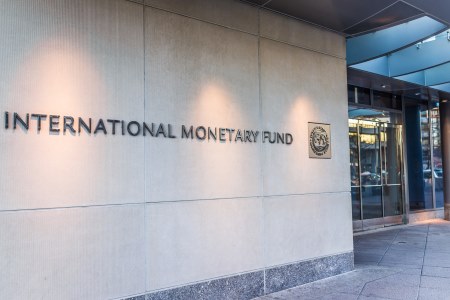
Managing director of the International Monetary Fund (IMF) Christine Lagarde has stressed the importance of having central bank backed digital (CBBD) currencies, arguing that each state should have a bigger role in leading the cashless bandwagon in developed economies.
Speaking to an audience at the Singapore Fintech Festival on Wednesday (14 November), the IMF chief argued that by issuing digital currencies, governments could help satisfy public policy goals that private institutions are less inclined to work towards, such as financial inclusion, improved security and consumer protection, as well as tackle privacy concerns in payments.
Developed countries like Sweden have already taken the leap in revolutionising the way payments are made, with the country’s central bank moving forward with plans to create a new technical framework capable of issuing a new electronic currency: the e-krona.
The role the state has in regulating money has been transformed by the fintech revolution.
Ms Lagarde stated: “The fintech revolution questions… coins and commercial deposits, and it questions the role of the state in providing money,” she said.
“Banks are not exactly rushing to serve poor and rural populations,” said Ms Lagarde, but she did note that millennials particularly in developed countries, always with their phone in hand, are already reinventing how money is being managed.
Lagarde has urged policymakers and regulators to show an increased level of creativity in their thinking, by shifting their attention away from the disadvantages of financial integrity and stability.
Calling on governments worldwide to take the lead, Lagarde advised central banks to design a digital currency which would authenticate users’ identities but ensure anonymity and protection from third parties. This system would also invite anti-money laundering and terrorist financing controls.
According to Ms Lagarde: “Resilience may also suffer. With only a few links in the payment chain, the system may stop working if one of these links breaks. Think about a cyber-attack, a glitch, bankruptcy, or a firm’s withdrawal from the local market.
“But identities would not be disclosed to third parties or governments unless required by law,” she added.
“If a suspicion arose it would be possible to lift the veil of anonymity and investigate.
“This setup would be good for users, bad for criminals, and better for the state, relative to cash. Of course, challenges remain. My goal, at this point, is to encourage exploration,” Lagarde states.
With regards to the risks posed to the increasing role of commercial banks, Lagarde argued that “banks and other financial firms, including start-ups, could manage their own digital currency.”
She suggested that a joint venture between central banks and the private sector would be fitting, in such a way that “the central bank focuses on its comparative advantage – back-end settlement – and financial institutions and start-ups are free to focus on what they do best – client interface and innovation. This is public-private partnership at its best.”
